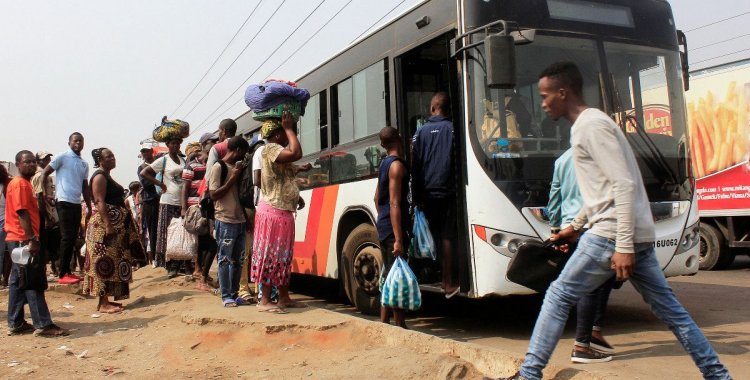The Increase in Transportation Fare: A New Burden for Workers
On July 6, 2025, the National Land Transportation Agency (ANTT) officially announced an increase in public transportation fares. The new fares are as follows:
- Kz 300.00 per trip for shared taxis (candongueiros);
- Kz 200.00 per trip for city buses.
According to the official statement, this increase was justified by the recent adjustment in the price of diesel, which has become more expensive in the national market. ANTT stated that this measure aims to guarantee the continuity of transportation services and the financial stability of companies in the sector.
Although the measure is legally justified, the truth is that it weighs heavily on the pockets of ordinary workers, especially in the private sector, where wages remain frozen and are not keeping pace with inflation.
Declining Purchasing Power and the Social Impact
Currently, a worker who uses two forms of transportation per day (round trip) now spends:
- Kz 600.00 per day on shared taxis;
- Kz 400.00 per day on city buses.
This represents, after 22 working days in a month, an expenditure of:
- Kz 13,200.00 per month on shared taxis;
- Kz 8,800.00 per month on city buses.
Considering that the average salary in the private sector ranges between Kz 150,000.00 and Kz 250,000.00, it's easy to see that transportation consumes a significant portion of household income. This situation is exacerbated when considering that the prices of food, energy, healthcare, and education have also risen in recent months. Many families are forced to cut other essential expenses to ensure transportation to work or opt for more precarious solutions, such as motorcycle taxis or long walks, increasing the risk of accidents and daily fatigue.
The Role of the State and the Need for Sustainable Solutions
In my opinion, this problem cannot continue to be ignored. The government needs to devise solutions to protect workers, who are the foundation of the national economy. Some urgent measures include:
- Implementing transportation subsidies for low-income workers;
- Gradual adjustment of the minimum wage, proportional to the increase in the cost of living;
- Serious investment in the modernization and expansion of public transportation, with greater efficiency and more affordable prices;
- Encouraging the creation of alternative transportation, such as public bicycles or electric transportation.
On the other hand, private companies also have a role to play. They should consider supporting their employees with transportation subsidies, more flexible work schedules, or, when possible, transportation solutions organized by the companies themselves.
Conclusion
The increase in public transport fares represents much more than an economic issue. It is a social issue that directly affects the quality of life of thousands of Angolan workers, especially those already facing low wages and little job security. If the problem is not addressed responsibly, Angola could see worsening social inequalities, increased urban poverty, and demotivated workers, who end up losing a large portion of their income simply to commute to work.
It is urgent that the government, businesses, and civil society work together to find fair and sustainable solutions, ensuring that transportation does not continue to be an unbearable burden for Angolan families.
References
Agência Nacional dos Transportes Terrestres. (2025, 6 de julho). Comunicado de imprensa: Ajuste nas tarifas dos transportes públicos coletivos. Disponível em [ANTT – comunicados]
Banco Nacional de Angola. (2025, 21 de maio). Pressão inflacionária mantém-se em torno dos 17,5 %. Lusa/Correio da Manhã correiodamanhacanada.com+1sapo.pt+1.
Instituto Nacional de Estatística. (2024). Relatório anual de estatísticas. Luanda: INE ine.gov.ao+1correiodamanhacanada.com+1.
IMF. (2025, abril). Regional Economic Outlook: Sub‑Saharan Africa. Washington, DC: FMI worldbank.org+7imf.org+7undp.org+7.
Trading Economics. (2025). Taxa de inflação pré‑via de Angola. Disponível em [TradingEconomics] pt.tradingeconomics.com.
World Bank. (2025). Global Economic Prospects: SSA Growth Projections. Washington, DC: World Bank.








